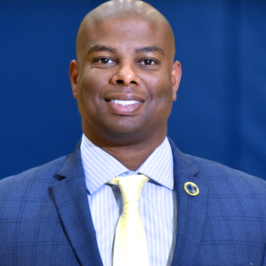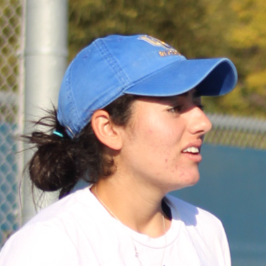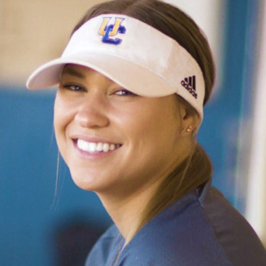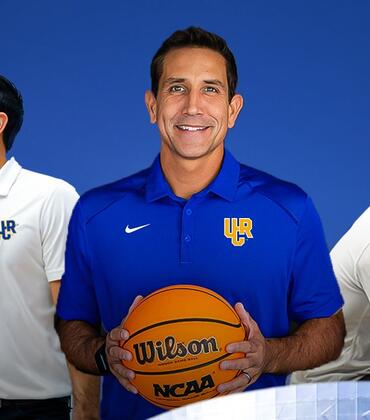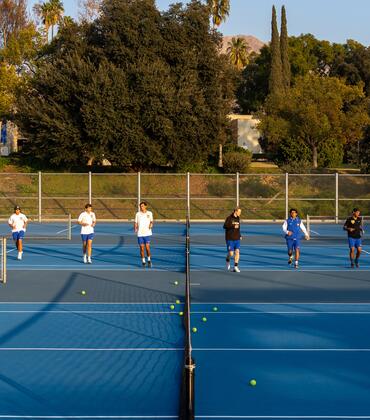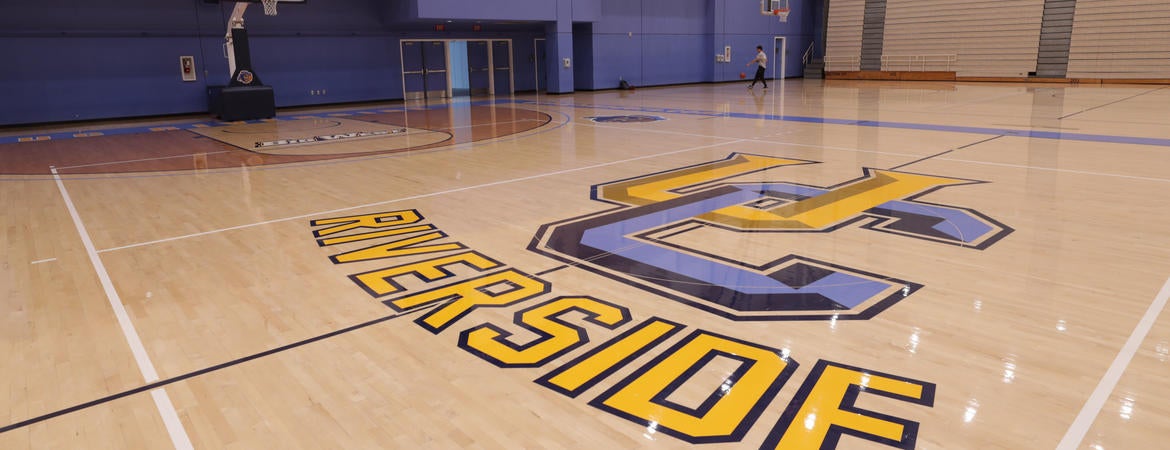
On the morning of March 12, head men’s basketball coach David Patrick was at an Anaheim hotel preparing his team to take on UC Santa Barbara in the first round of the Big West Tournament.
But he didn’t really expect the game, which was scheduled to take place in only a couple hours, to take place.
In the middle of the team’s pregame walk-through, he got a call from UCR Athletics Director Tamica Smith Jones confirming his fears: the tournament, and indeed the rest of the season, had been canceled in an effort to stop the spread of COVID-19.
“When I saw the Utah Jazz cancel their game the night before, I felt college basketball would follow suit,” said Patrick, adding the safety of the players, their families, and fans was paramount.
Making the news even harder to deliver at the team breakfast a short time later was that the Highlanders, coming off their most successful season in years with a 17-15 record, had been invited to two postseason tournaments. It was the first time the men’s basketball team had been invited to participate in a national postseason tournament since joining the NCAA’s Division I in 2003.
It was a devastating blow for the players, particularly seniors Dikymbe Martin and Khy Khabellis, whose college careers were now over.
“I really hate that our seniors couldn’t experience that,” said Patrick, who played on the 1996 Syracuse University team that reached the national championship game. “That’s stuff you talk about when you’re 30, 40 years old.”
Nine other UCR spring sports teams were forced to end their season early: women’s basketball, men’s and women’s tennis, men’s and women’s golf, men’s and women’s track and field, baseball, and softball.
When the Riverside County Public Health order forced the UCR campus to close on March 16, Senior Associate Athletics Directors Michael Boele and Wes Mallette met daily with senior team members and coaches, and also with Associate Athletics Director for Sports and Medicine Tony Ontiveros to ensure student-athletes had access to food, housing, and resources to continue their studies remotely. The plan was then presented to Jones for approval.
“I am extremely proud of the way our senior staff has pulled together to lead their respective areas,” Jones said. “We convene regularly to assess the changing circumstances during this pandemic and to make shared decisions regarding amendments to the state of California, University of California system, NCAA, Big West Conference, and UC Riverside policies, guidance and recommendations."
A primary goal, Ontiveros said, was to connect students with on-campus resources such as R’Pantry and the Economic Crisis Response Team, as well as government services such as CalFresh, which is California’s food stamps program.
Coaches and staff have also been conducting weekly “wellness checks” with the players and made them aware of mental health services the campus has made available, such as health webinars and counseling.
“We’re asking, ‘Are you getting enough food? How is your family doing?’ Just doing a general check, then we can get that information to the right people if something comes up,” said Ontiveros, a member of the UCR Healthy Campus group that helped organize the webinars. “To be thrust back into the rules and regulations of your parents and being told you can’t leave the house, I’m sure that’s a challenging situation for every student that is back home.”
The sports medicine staff has created instructional videos for students on how to perform simple cooking tasks such as boiling eggs and making rice, as well as videos demonstrating mask making and proper handwashing techniques. The videos were posted to the unit’s Instagram and Twitter accounts.
“They’re more inclined to watch it if it’s someone they know,” Ontiveros said.
While NCAA rules prohibit coaches from mandating physical workouts for the time being, student-athletes may request to speak with the strength and conditioning staff to help them stay fit and maintain strength gains they made during the season.
Sam Lebowitz, interim director of strength and conditioning, and Mark Espinosa, associate athletic trainer, have worked with a number of players to help them craft regimens that cater to their individual needs and living situations, Ontiveros said.
Sara Khattab, a senior women’s tennis player, said she was heartbroken she didn’t get to experience her final weeks as a college athlete. However, she noted these outreach efforts have helped her cope through this difficult and uncertain period.
“I am incredibly grateful for the support from the Athletics Department through all this craziness,” she said. “Coach (Mark) Henry has been keeping in touch with all of us to make sure we are handling things alright. Our sports medicine trainer, Jessika (Hunt), has been keeping tabs on our health and well-being. And Sam (Lebowitz), our strength and conditioning coach, has been making and posting workouts, which we could do with whatever limited equipment we have. Working out has been one of the biggest factors in keeping me sane through quarantine.”
Sophomore softball player Haylee Kela said she and her teammates were at practice when the coaches told them the rest of the season had been cancelled. She has tried her best to stay active and work on her craft while stuck at home.
“Our coaches have been nothing but helpful … especially focusing on our mental health,” Kela said. Mark (Espinosa) is more than willing to even help assess our injuries in any way possible. Sam (Lebowitz) has from day one sent us special-made workouts for each of us depending on what kind of equipment we have at home.”
But it’s not all bad news for UCR’s seniors. In late March, the NCAA granted spring-sport student-athletes an additional season of eligibility should they wish to return to school. Financial aid rules have also been adjusted to allow teams to carry more scholarship players in 2020-21 to account for incoming recruits and student-athletes who had been in their last year of eligibility who decide to stay. Roster limits for baseball teams have also been increased for next season.
“As you can imagine, finding ways to create opportunities for our senior student-athletes who wish to return for their final season of eligibility is challenging given some of the financial restrictions,” Jones said. “We are establishing quickly what we can do to help. For example, we are encouraging them to pursue advanced degrees, and we have a member of our Women’s Tennis team who has been accepted into a UCR Ph.D. program.”
Jones also noted a Student-Athlete Success Fund has been established to help provide for the individual needs of Highlander student-athletes, such as technology for online academic instruction, housing, emergency travel to reunite with family, nutrition, and other unexpected expenses caused by COVID-19 precautions.
For media inquiries, please contact: Wesley Mallette, chief of staff & senior associate athletics director, external relations, wesley.mallette@ucr.edu.
